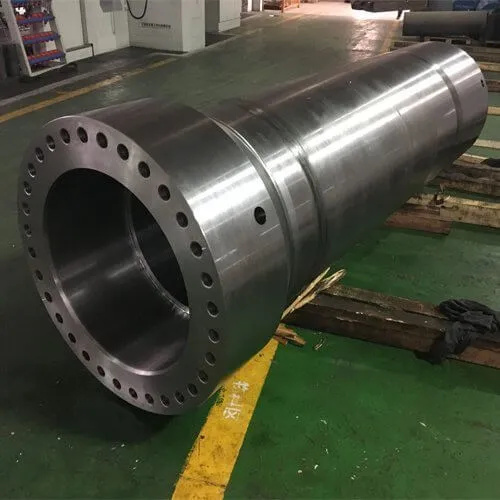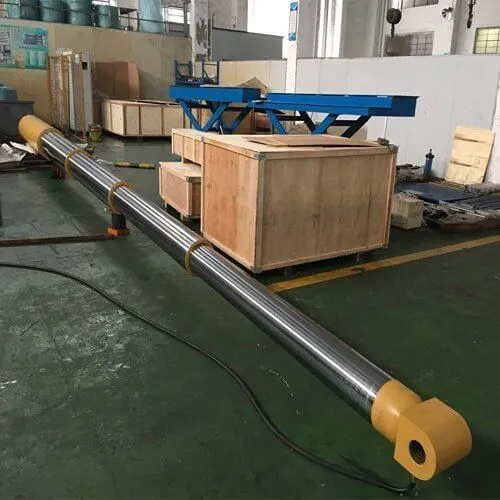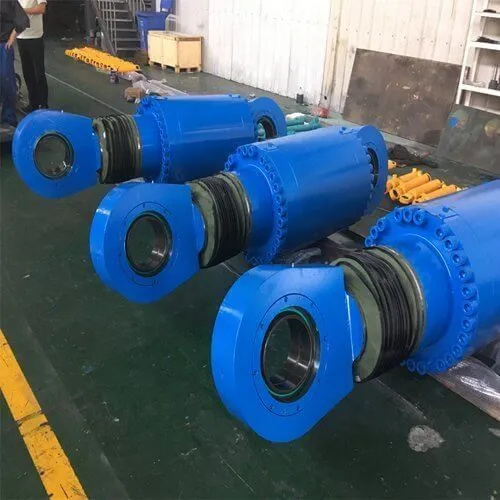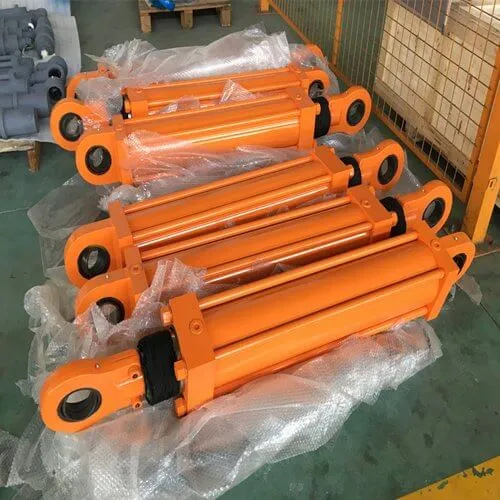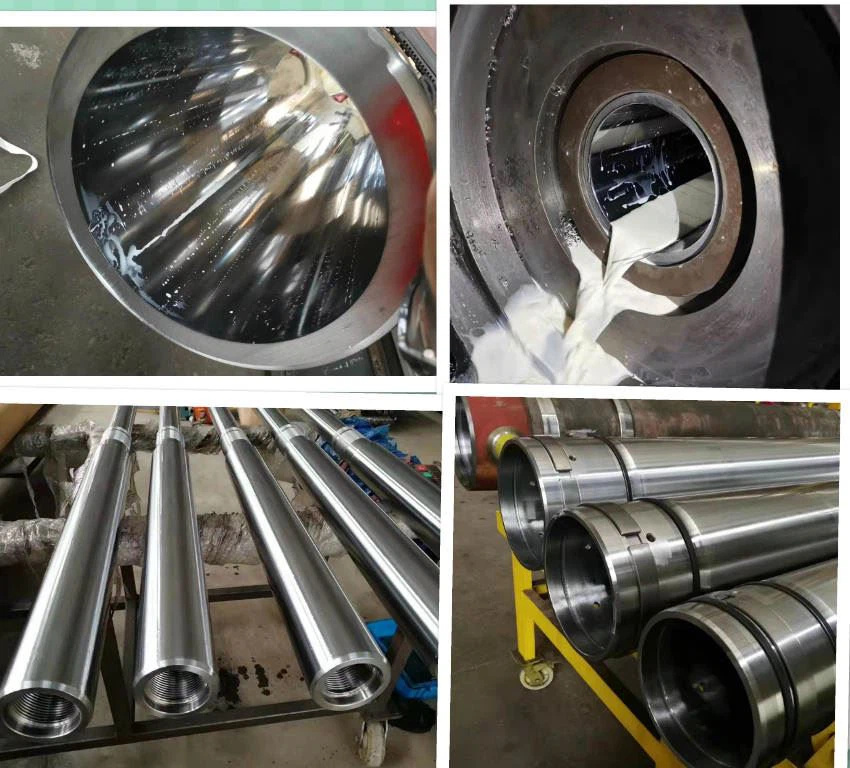A hydraulic cylinder is a device that converts hydraulic energy into mechanical energy, generating reciprocating or swinging motion in hydraulic actuators. It is a simple and reliable mechanism widely utilized in hydraulic systems. When used for reciprocating motion, it eliminates the need for deceleration devices, offers a smooth motion without transmission gaps, and finds extensive applications across various machines.
Hang Upside Down Telescopic Cylinder Double Acting Heavy Duty Stoke 16m
Structure: Piston Cylinder
Power: Hydraulic
Body Material: Steel
Packaging Details: Standard Export Package
Delivery Time: 15~60 days depend on product type
Payment Terms: L/C,T/T
Supply Ability: 2400 Ton/Tons per Year
Port: SHANGHAI
Advantages and Disadvantages of Pneumatic and Hydraulic Cylinders:
1.Pneumatic cylinders are suitable for low-power applications as pneumatic systems typically operate within the range of 0.2-1.0 MPa. On the other hand, hydraulic cylinders can be used in high-power devices that utilize hydraulic systems.
2.Pneumatic cylinders benefit from the availability of unlimited air as a medium, with no associated cost or supply difficulties. The exhaust gas is released directly into the atmosphere, making it convenient and pollution-free. In contrast, hydraulic systems require hydraulic oil, which incurs costs and can present challenges in terms of supply and environmental impact.
3.Air has a lower viscosity and offers less resistance compared to hydraulic oil.
4.However, compressed air has a significantly higher compressibility compared to hydraulic oil. Consequently, pneumatic cylinders exhibit smoother operation but may have a delayed response.
5.The hydraulic cylinder system plays a vital role in converting hydraulic energy into mechanical energy and can be integrated with various transmissions to accomplish a wide range of mechanical movements. Hydraulic cylinders are characterized by their simple structure, high output force, stable and reliable performance, ease of maintenance, and versatile applications.
